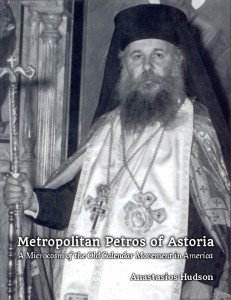Christ Preached in Hades
Dear Friends in Christ,
Christ Is Risen! Χριστός ανέστη!
We had a blessed Pascha here in Greenville, North Carolina. Those of you who were able to make it joined me in witnessing our largest turnout to date. Seeing this steady growth of our parish is encouraging and gives us the energy needed to keep going and continue to expand our parish ministries.
During Holy Week and Pascha, we hear a lot about Hades, which is the Greek word that is used to translate the Hebrew word Sheol, and means the realm of the dead. It is the place that all of the people before Christ went, whether bad or good, due to Christ’s work on the Cross not yet being completed. When Christ died on the Cross, He descended into Hades and freed the captives held there—in other words, all of the righteous ones of the Old Testament. As the Paschal troparion states, “Christ is risen from the dead; by death hath He trampled down death, and on those in the graves hath He bestowed life.”
In the period after Pascha, we read through the Book of Acts. This past Saturday, we heard the following during the reading:
And when they heard that, they entered into the temple early in the morning, and taught. But the high priest came, and they that were with him, and called the council together, and all the senate of the children of Israel, and sent to the prison to have them brought. But when the officers came, and found them not in the prison, they returned and told, Saying, The prison truly found we shut with all safety, and the keepers standing without before the doors: but when we had opened, we found no man within. Now when the high priest and the captain of the temple and the chief priests heard these things, they doubted of them whereunto this would grow. Then came one and told them, saying, Behold, the men whom ye put in prison are standing in the temple, and teaching the people (Acts 5:21-25).
Hearing about the prison reminded me of Hades. Righteous people were taken there unjustly, and locked within. Guards were at the doors. But when the council of the Jews went to bring those detained, they found no man in the prison. Now, it is unlikely that the prison was completely empty, so by this statement we can understand that those who were being sought were no longer there; “no man” refers to the Apostles who had been detained, and not to the common prisoners. In the same way, the hymns of our Church speak of Hades being emptied of its captives, yet we know that there remain people in Hades awaiting judgment.
It is amazing to think that St. John the Baptist descended first into Hades to prepare the way for Christ (as the hymns of our Church teach us) and then Christ Himself went there to preach. For those who were righteous, His words were life and they were given life. For those who rejected Him, however, His preaching merely hardened them in their ways. As St. Peter reminds us:
For Christ also hath once suffered for sins, the just for the unjust, that he might bring us to God, being put to death in the flesh, but quickened by the Spirit: By which also he went and preached unto the spirits in prison; Which sometime were disobedient, when once the longsuffering of God waited in the days of Noah, while the ark was a preparing, wherein few, that is, eight souls were saved by water (1 Peter 3:18-20).
Christ’s preaching here is to confirm the rejection of these wicked, who being faced with God Himself, still chose to reject Him, while saving those who responded to His call.
How can one stand face to face with Christ, and yet still reject Him? It is a question I have often wondered, but when I think of my own sinfulness, the answer becomes clear. When the soul is pure, it sees God and experiences His grace, but when the soul becomes darkened through sin, it is like a windshield becoming dirty or a glass becoming covered with film, and gradually the grace of God is dimmed and in some cases even extinguished completely. Those who rejected Christ in Hades were unable to respond to Him because of their own hardened hearts. Their darkened souls prevented them from admitting their need for the Savior, and while they intellectually understood it when confronted with Him, they could not join themselves to Him.
In the same way, many of us think that we will be saved in the end, because we know who Christ is, and accept that He died for our sins, and we are trying to live a good life. But in reality, our faith in Christ must be transformative, for “faith without works is dead” (James 2:17). If after we have come to Christ and His Church we do not notice any change in our life, or we find excuses as to why we cannot grow in faith, then we are experiencing a foretaste of our eternal destiny; if we can stand here on Earth, confessing Christ with our lips but not with our heart, then at death we will be unable to respond to Christ’s love and presence in front of us.
Let us avoid such a fate by calling out “Lord, have mercy!” and instead of trying to merely follow a set of rules, let us live our lives showing the same love toward Christ as He has already shown toward us, never wishing to do anything that will cloud our vision of Him again. If you are not sure how to begin this process, please come to the Church, and after the service we can sit down and talk.
In Christ,
Fr. Anastasios


